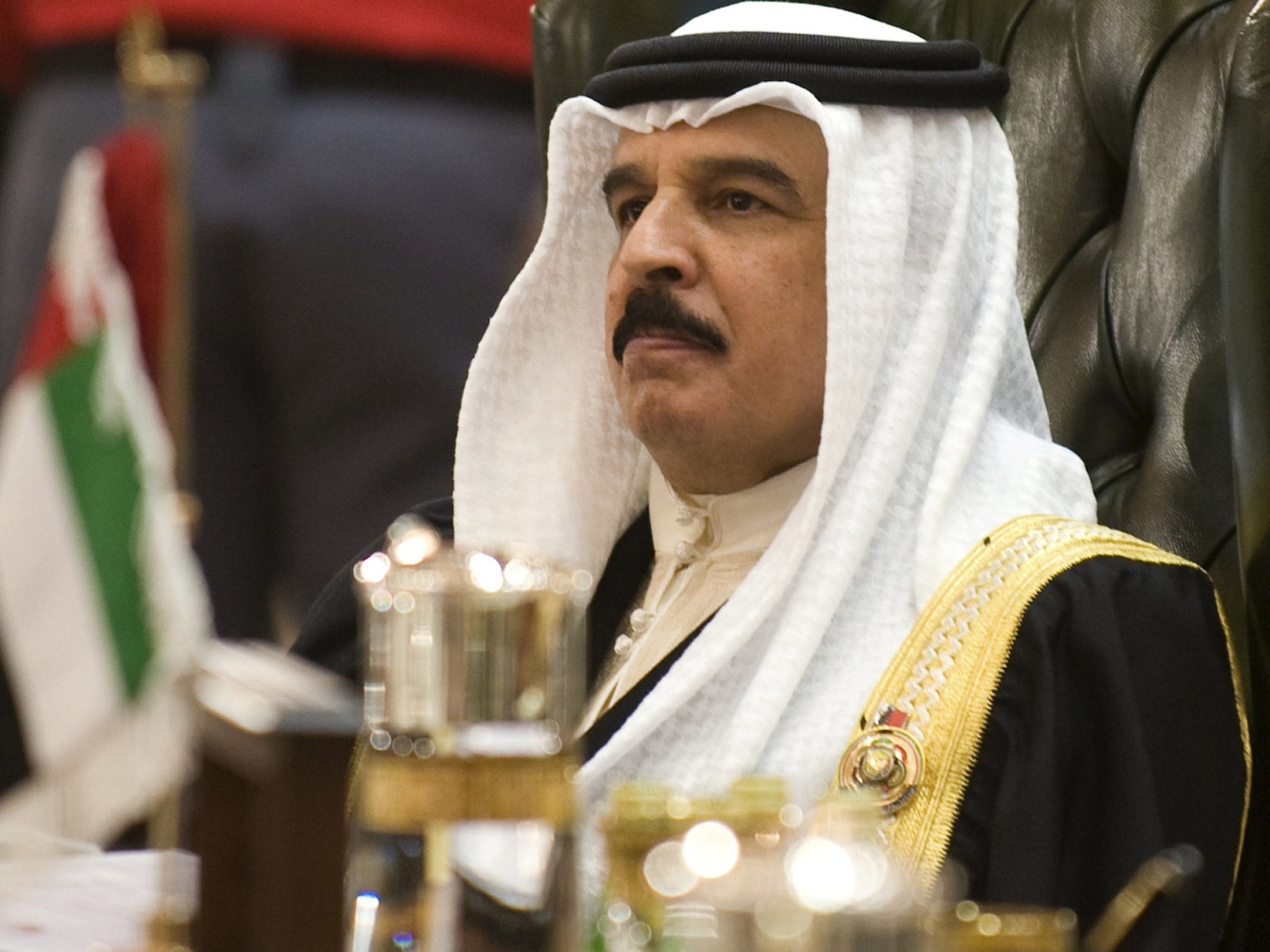Bahrain's royal family infiltrated by hardliners hostile to Britain and US
Western concerns rise as ultraconservative Sunni faction strengthens grip on island's monarchy

Bahrain’s royal family has become increasingly controlled by a hard-line faction that keeps close ties to Saudi Arabia and is vehemently opposed to any concessions that might end months of sectarian conflict inside the troubled kingdom.
Reports from Manama suggest the takeover of the Royal Family by the so-called “Khawalid faction” has become so successful that Bahrain’s chief allies in London and Washington are beginning to fear that the normally pro-West monarchy is being usurped by a group with virulently anti-American and anti-British views.
Rumours of an ultraconservative group becoming increasingly influential have abounded inside the Gulf Kingdom ever since protests led predominantly by the country’s majority Shi’a population broke out in February 2011 against the ruling Sunni al-Khalifa dynasty. Shi’a opposition groups accuse the Khawalids of masterminding the crackdown against them that has led to more than 80 deaths and the stalling of calls for democratic reform that would give the marginalised Shi’a a greater say in how the country is run.
But in a highly unusual step, members of the Royal Family are now beginning to speak out against their rivals – the first clear admission that the family has indeed become divided. In an anonymous interview with the Wall Street Journal newspaper this week, a “senior royal” hit out at his cousins bemoaning the fact that “surrounding the king are all powerful Khawalids”.
Khawalid is a term used in Bahrain to describe an ultraconservative faction within the Royal Family who trace their lineage back to Khaled bin Ali al-Khalifa, who in the 1920s was the powerful younger brother of the then Emir. He led a brutal crackdown against a Shi’a uprising and was imprisoned by the British. His supporters were known for their intense dislike of the island’s majority Shi’a population and spent much of the late twentieth century outside the corridors of power. But key Khawalid figures have managed to get into senior positions within the Royal Family and in recent years appear to have sidelined figures who are more sympathetic to economic and political reform such as the Crown Prince Salman bin Hamed al-Khalifa.
According to a report last year by the Carnegie Endowment for International Peace much of Bahrain’s political power now lies in a “conservative triumvirate” comprised of Prime Minister Khalifa bin Salman al-Khalifa, Royal Court Minister Khalid bin Ahmad bin Salman al-Khalifa, and the commander of the Bahrain Defense Forces Khalifa bin Ahmed al-Khalifa. The Prime Minister has long been a conservative adviser to the King while the last two are brothers who come from the Khawalid branch of the al-Khalifa family.
The current king, Hamed bin Isa al-Kahlifa, came to the throne in 1999 and initially won praise in the West as a reformer who gave women the right to vote, released political prisoners and encouraged genuine talks with Shi’a opposition groups. In more recent years he has been increasingly sidelined as the Khawalid have pushed an increasingly sectarian and conservative agenda. When protests, inspired by similar uprising across the Arab world, broke out in February 2011, it was the Khawalids who persuaded the king to ignore the pro-reform instincts on his crown prince and instead call upon Saudi troops to restore order.
Saeed al Shehabi, a prominent London based Shi’a opposition figure, says the rise of the Khawalids has caused concern among British diplomats. “I don’t think the British want the Khawalids in power because they tend to prefer dealing with the moderates,” he told The Independent. “But the Khawalids get their support from Saudi Arabia which has left the British in a sort of limbo.”
Ironically the rise of an anti-Western faction within the Royal Family has coincided with increasing anti-British and anti-American sentiments among Shi’a protest groups. Initially moderate Shi’a groups such as the mainstream Wefaq party hoped Britain and Washington would support their calls for democratic reform. When they failed to do so more radical groups such as the 17 February Youth Coalition became more influential and have begun to adopt increasingly anti-Western rhetoric.
Bahrain’s Sunni led government has accused neighbouring Iran of fomenting the trouble inside its borders. However Shi’a opposition groups say they are entirely indigenous and are simply campaigning against decades of injustice from their Sunni rulers.
Hopes for a solution remain remote. On Tuesday two prominent Sunni factions said they were suspending participation in talks with Shi’a opposition groups because of a spike in violence that has coincided with the two year anniversary of the 14 February uprising.
Join our commenting forum
Join thought-provoking conversations, follow other Independent readers and see their replies
Comments